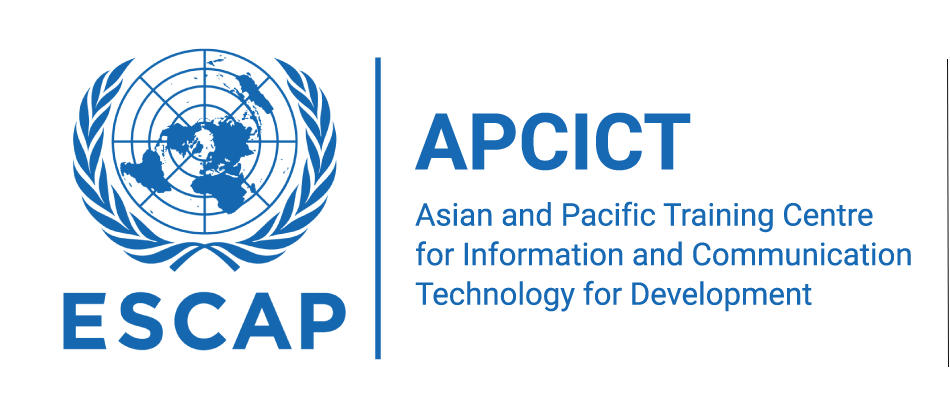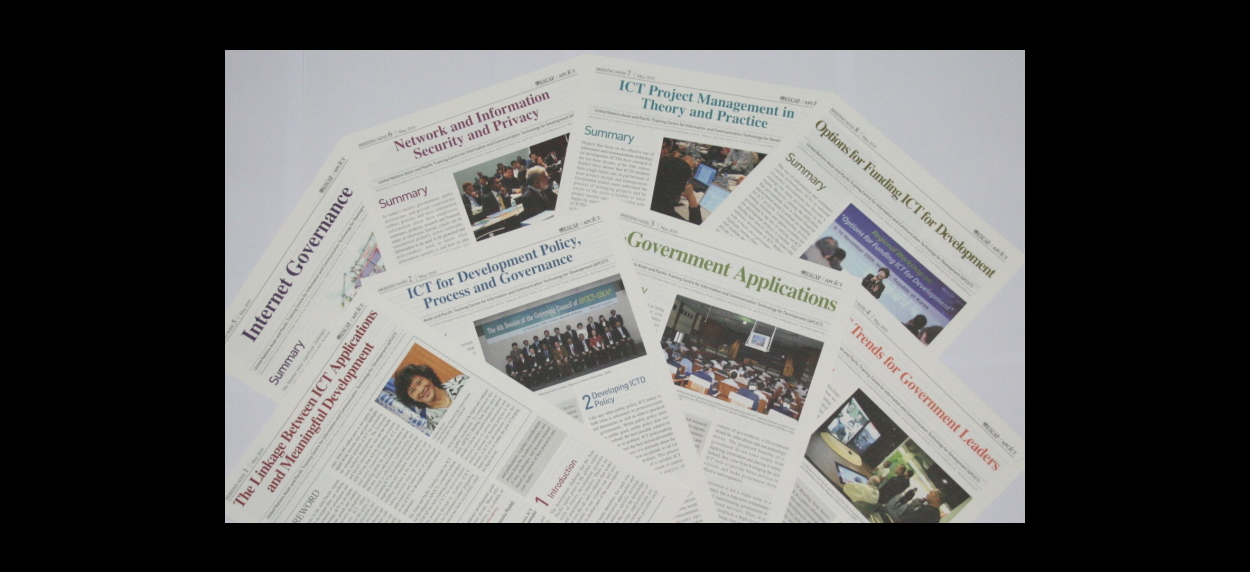New ICT for development (ICTD) publication looks to raise awareness on ICT for development by targeting high-level government officials and policymakers from across the Asia Pacific.
Incheon, Republic of Korea – The United Nations Asian and Pacific Training Centre for Information and Communication Technology for Development (UN-APCICT/ESCAP), a regional institute of the Economic and Social Commission for Asia and the Pacific, today published the first eight editions of its new ICTD Briefing Notes Series. The publications, based on the curriculum of APCICT’s “Academy of ICT Essentials for Government Leaders Programme” (Academy) and showcased at the 66th Session of ESCAP in May, are designed to provide senior government officials with concise yet detailed analysis of ICT for development related issues and topics related to use of information and communication technology (ICT) for socio-economic development.
“Each Briefing Note edition and those that will follow, is intended to help policymakers and development stakeholders obtain a better awareness of ICT for development issues and provide them with insight into the ways ICT can be leveraged to facilitate socio-economic development in their countries,” said Dr. Hyeun-Suk Rhee, Director of APCICT.
Briefing Note 1, The Linkage between ICT Applications and Meaningful Development, explores the various dimensions of ICT applications in key sectors of development in countries of the Asia-Pacific region. The Briefing Note also highlights substantive issues and decision points, from policy to implementation, in the use of ICTs to meet development needs.
ICT for Development Policy, Process and Governance, is the title of Briefing Note 2 which focuses on ICTD policy-making and governance, and provides critical information about aspects of national policies, strategies and frameworks that promote ICTD. It discusses key ICTD policy and governance issues, and shows how governments can measure their progress and benchmark that progress against those of other countries.
Briefing Note 3, e-Government Applications provides an overview of e-government, including key elements and concepts, principles and types of applications. It discusses how an e-government system is built by providing detailed analysis of exemplar systems and identifying design considerations.
Providing insight into current ICT trends, Briefing Note 4, ICT Trends for Government Leaders, discusses some of the key technical and policy considerations when making decisions for ICTD in the local and regional context.
Briefing Note 5, Internet Governance, explores the challenges faced by policymakers in developing international policies and procedures to govern the use and operation of the Internet. The Briefing Note pays particular attention to the Asia-Pacific region, noting that emerging economies need to understand these challenges if they are to have a voice in the global information network.
Titled Network and Information Security and Privacy, Briefing Note 6 looks at what information security is and how to take action against information leakage and infringement. It provides an overview of the need for information security, information security issues and trends, and the process of formulating an information security strategy.
Briefing Notes 7, ICT Project Management in Theory and Practice, provides an introduction to basic project management concepts that are relevant in ICTD projects, and introduces methods, processes and project management disciplines commonly used by development and ICT service management practitioners.
Briefing Note 8, Options for Funding ICT for Development, notes the financial and technical limitations of funding government plans and projects to deliver public services through the use of ICTs, and explores the ways public-private partnerships (PPP) can help deliver the highest levels of public service at a reasonable cost. The Briefing Note discusses these alternative funding options for ICTD and e-government projects.
Online versions of the Briefing Note editions are immediately available through the APCICT e-Collaberative Hub.



